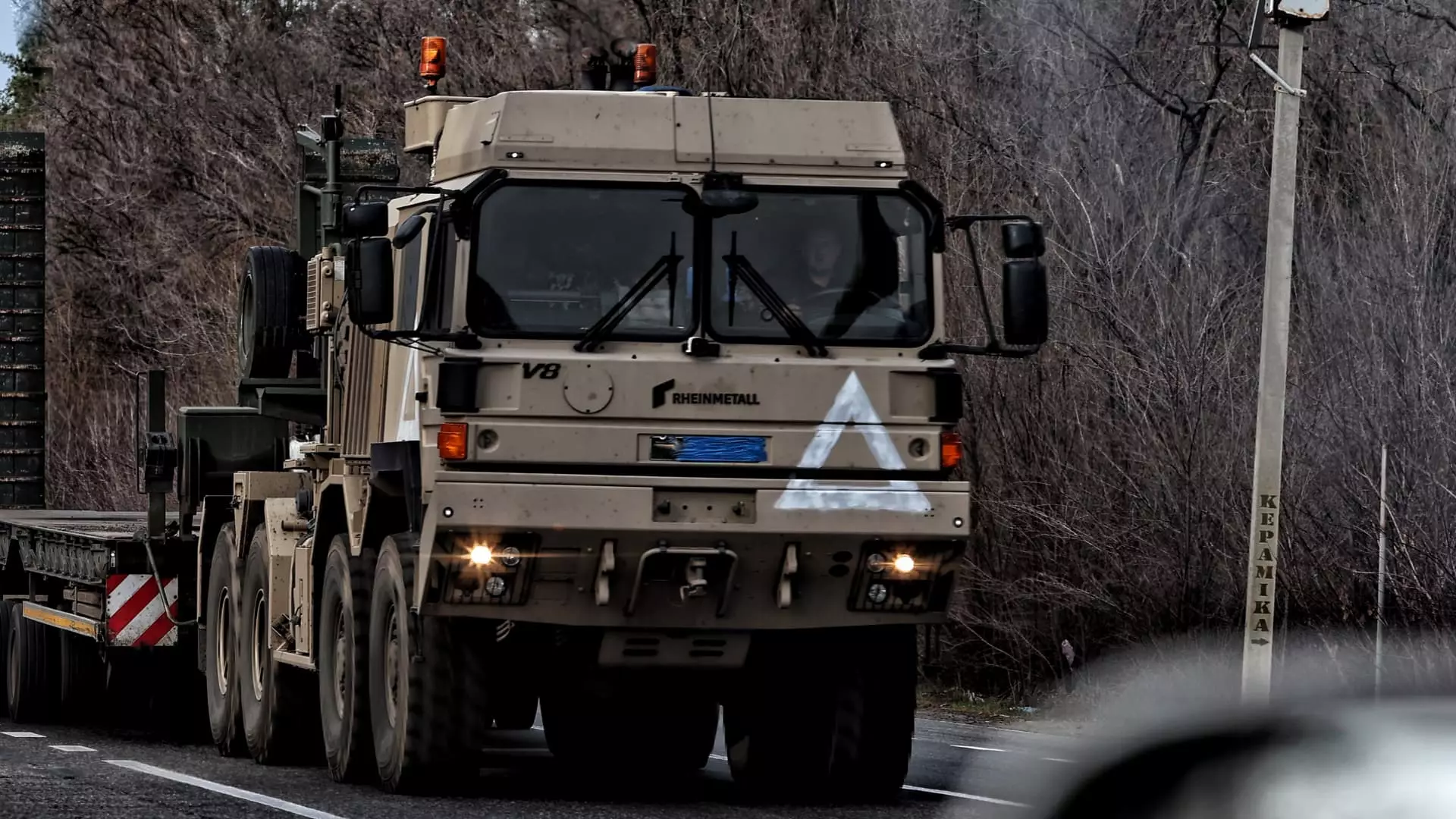Rheinmetall, a prominent player in the global arms industry, has recently made headlines with its forecast of an impressive 25-30% increase in sales for 2025. This anticipated growth rests on a solid foundation of geopolitical shifts and an increasing emphasis on military preparedness across Europe. As global security paradigms evolve, companies like Rheinmetall are strategically positioning themselves to harness the anticipated demand for defense products, likely leading to the transformation of the European defense landscape itself.
This meteoric rise in sales projections isn’t merely a stroke of luck; it results from Rheinmetall’s deliberate adjustments in response to the ongoing political tumult surrounding European defense spending, particularly in light of the continued conflict in Ukraine. The company has reported a staggering 36% increase in sales for the past year, with defense-related revenue growing a remarkable 50%. Such explosive growth exemplifies the changing priorities of nations grappling with unpredictable global security threats.
Profits on the Rise Amid Escalating Military Demands
With operating profits soaring to a record high of €1.48 billion ($1.61 billion) and an operating margin that has climbed from 12.8% in 2023 to 15.2%, Rheinmetall is undeniably thriving in a time of crisis. The company’s surge in profitability comes as governments across Europe scramble to bolster their military capabilities—and Rheinmetall stands ready to fulfill that demand. As their order backlog reaches an all-time high of €55 billion, it is evident that militaries of allied nations are placing substantial faith in the advanced technologies and services that Rheinmetall provides.
However, the company’s outlook is not without caveats. Despite the optimistic projections, Rheinmetall explicitly states that current forecasts do not fully account for the intricate nature of geopolitical developments. As the situation in Ukraine continues to evolve, fluctuations in military spending across Europe may influence Rheinmetall’s bottom line, demanding agility and adaptability from the company. The phrase “major high-volume orders from military customers” echoes throughout the industry, highlighting the urgent requirement for defense solutions that cater to a rapidly changing security environment.
Rheinmetall: Steady Navigator in Turbulent Waters
Rheinmetall’s role as a primary defense partner for Ukraine in its conflict with Russia demonstrates the company’s sharp focus on strategic partnerships and global collaboration. With critical logistical support and the delivery of military assets, Rheinmetall proves itself not just as a supplier but as a vital ally in protecting sovereign interests against aggression. The narrative of security collaboration extends beyond Ukraine, encompassing significant involvement with armed forces across various nations, including the U.K., the U.S., and Germany.
As geopolitical tensions persist and the demand for defense capabilities surges, Rheinmetall’s CEO, Armin Papperger, has underscored the company’s commitment to advancing its operational capacity. The reference to “Zeitenwende 2.0” signifies a turning point for Germany’s defense policy under potential reforms aimed at increasing military expenditure, thus solidifying Rheinmetall’s promising positioning within this evolving landscape.
Market Reactions and the Future of European Defense
The financial market has responded enthusiastically to Rheinmetall’s recent affirmations, with a staggering 88.3% increase in share prices since the year’s start. This leap mirrors a broader trend among European defense firms poised to benefit from rising government defense spending—a crucial shift in policy inspired by threats from without and instability within. As nations in Europe grapple with the implications of these changes, it is evident that defense sowing is no longer a peripheral concern but an urgent priority.
President Trump’s pressure on NATO allies to assure adequate defense budgets further complicates the scene and emphasizes the need for strategic investment in military capabilities. Conversations around the extent to which European nations can rely on American support intensify, suggesting that self-sufficiency in defense spending could be critical in the near future. The cautious optimism heralded by market analysts, including JPMorgan’s recent valuation increase for Rheinmetall’s shares, reflects an awakening realization that this is not merely a fleeting moment but a substantial foundational shift in how Europe approaches its security architecture.
Through fiscal responsibility, strategic foresight, and strong partnerships, Rheinmetall stands not just to capitalize on current trends but to shape the future of European defense for years to come. Their potential contribution to securing national interests amid global turmoil cannot be overstated, and as the company continues to adapt to weather unpredictable political climates, they remain firmly in the driver’s seat of the arms industry.

